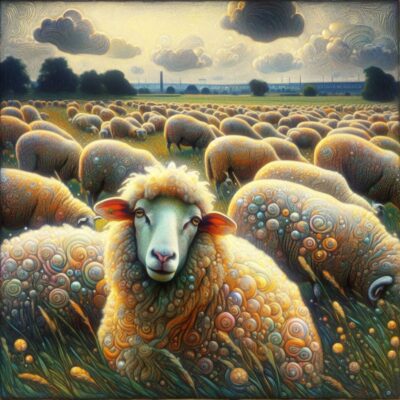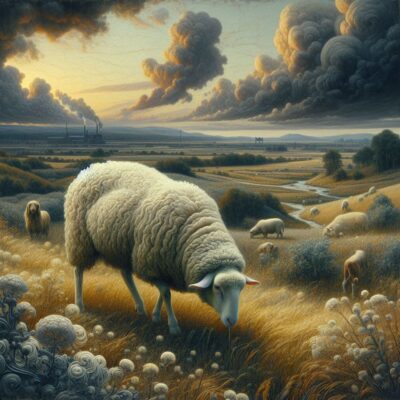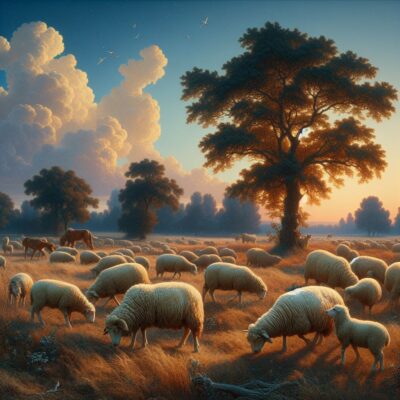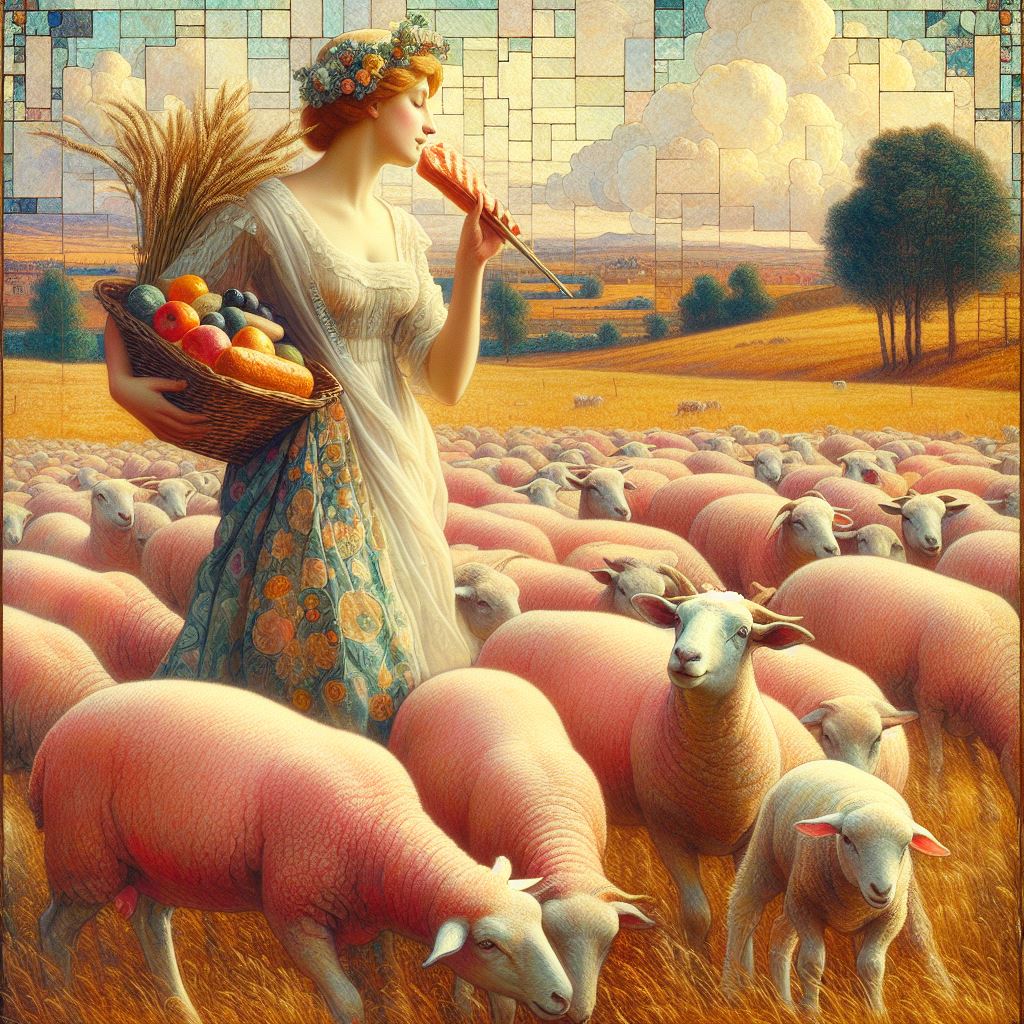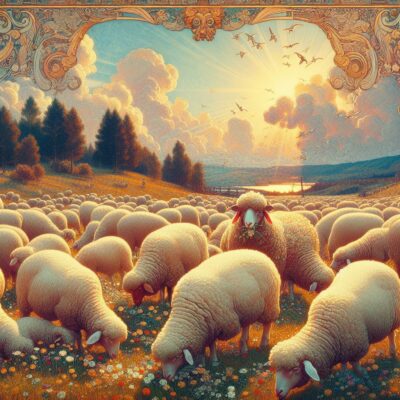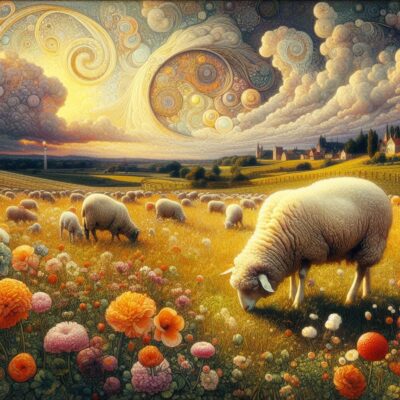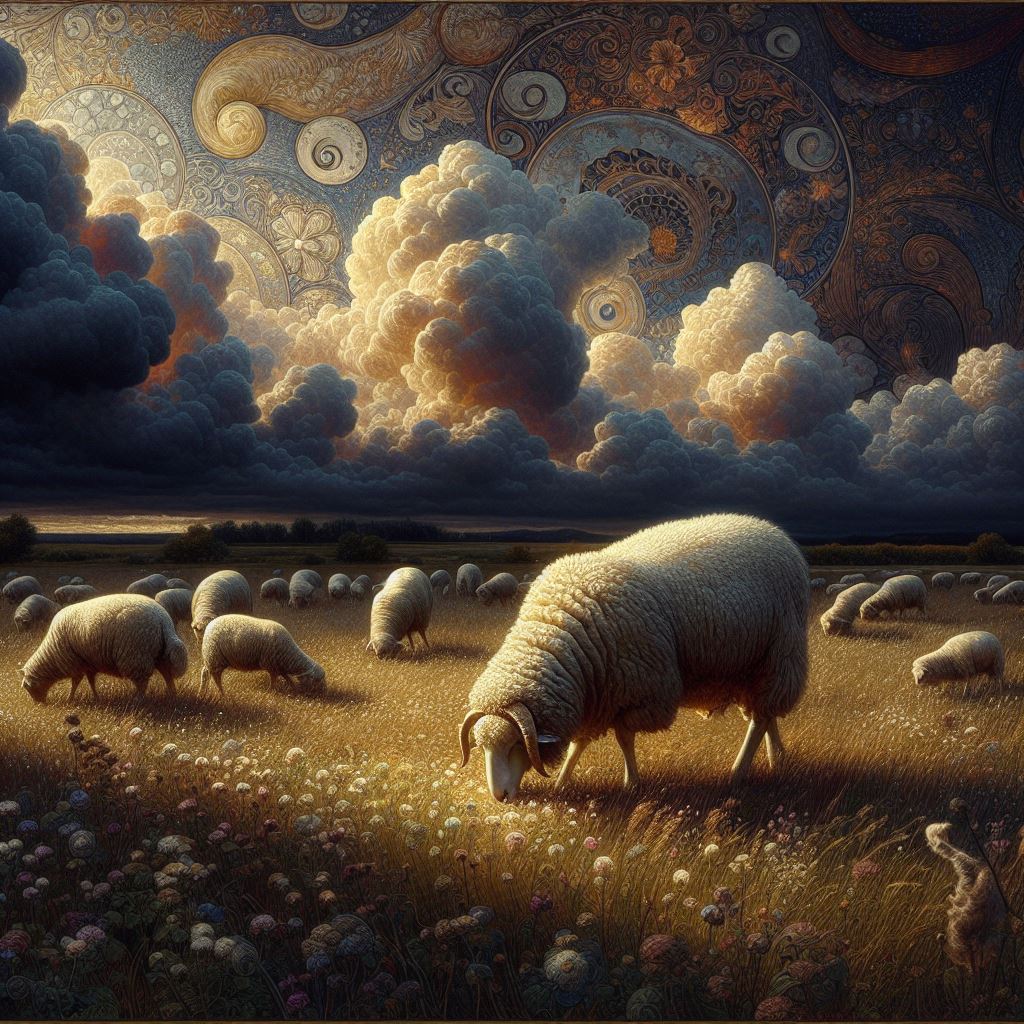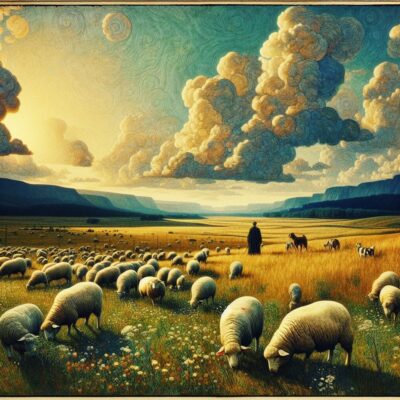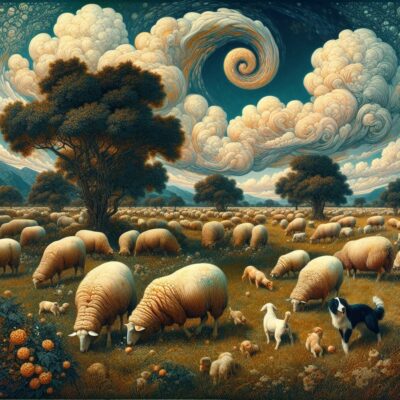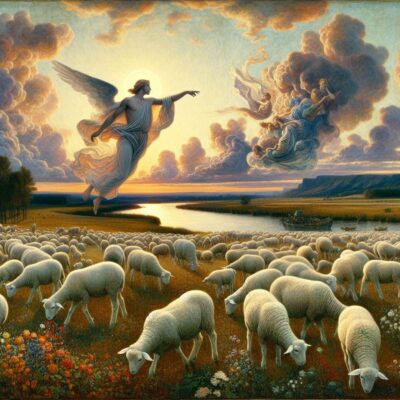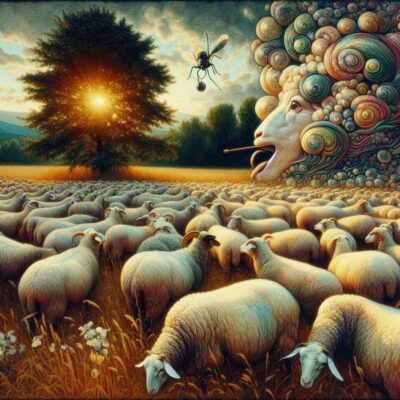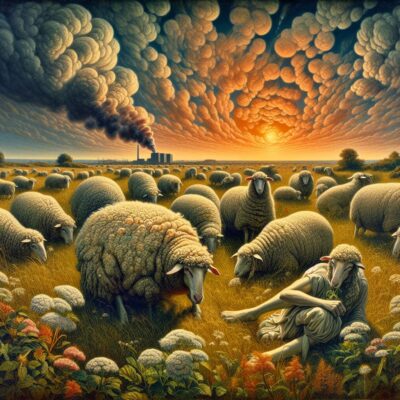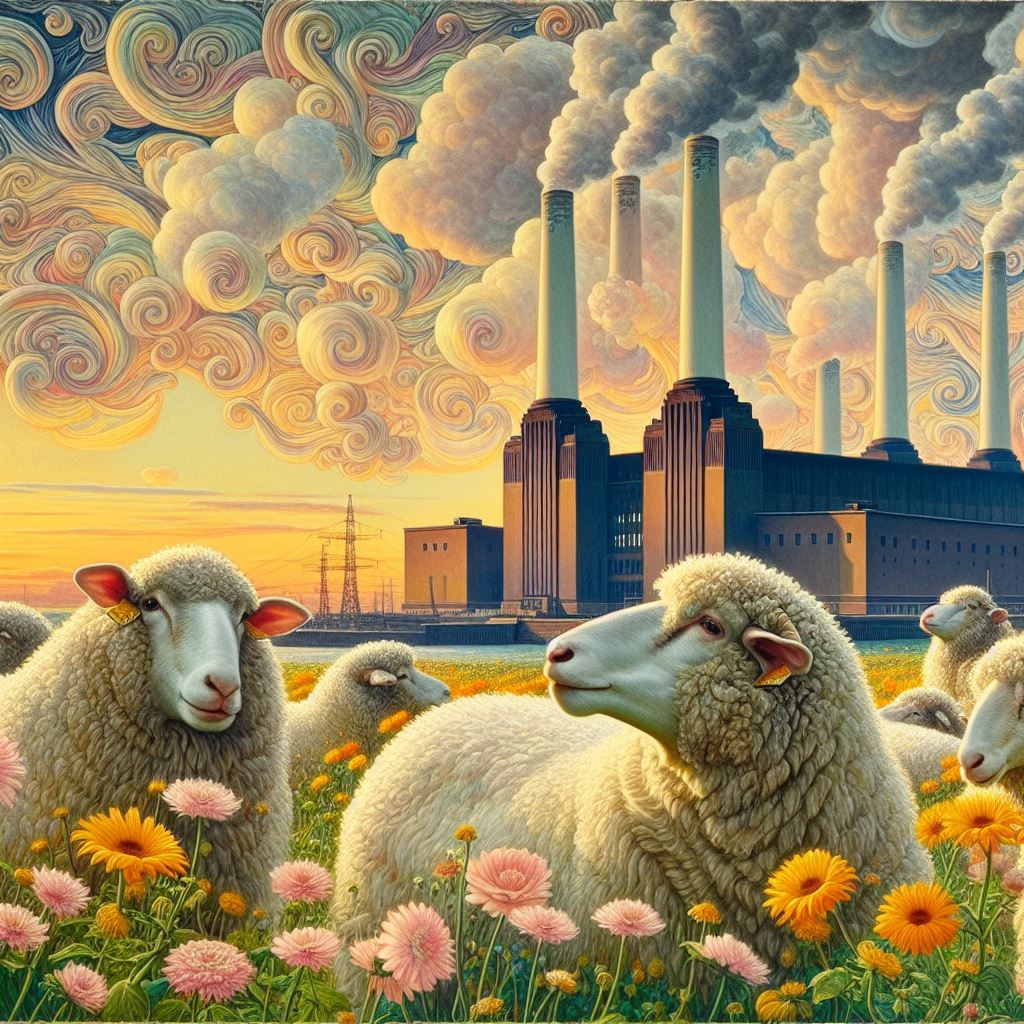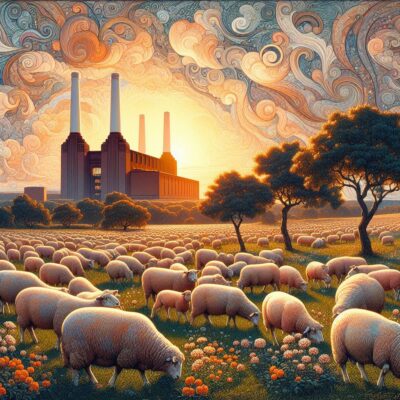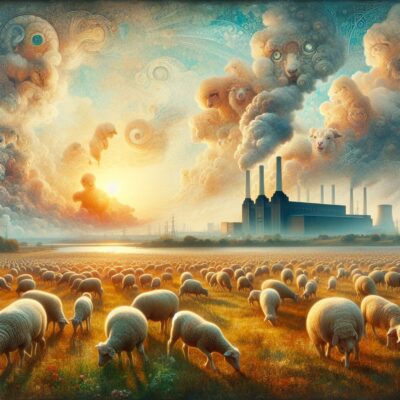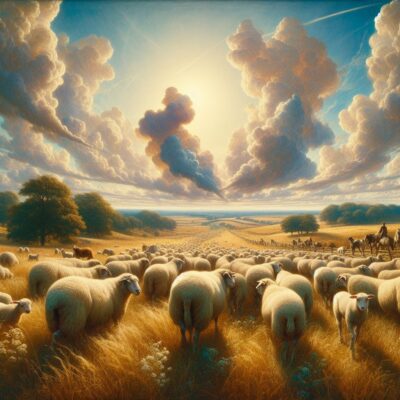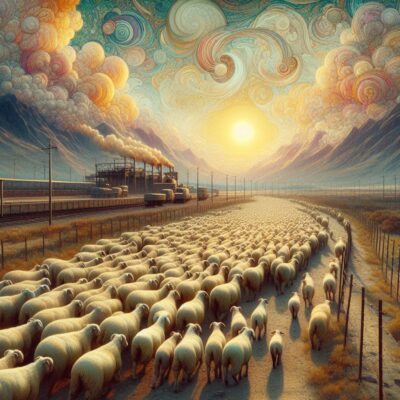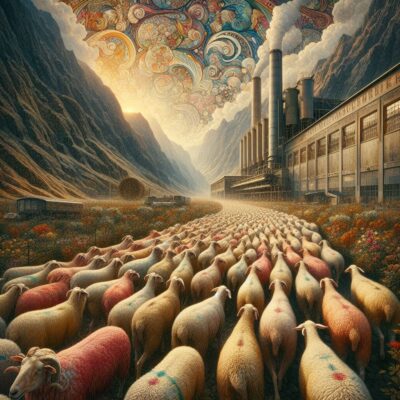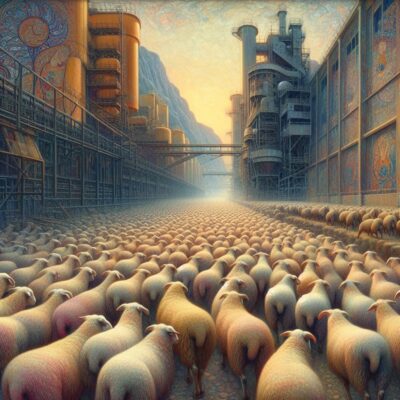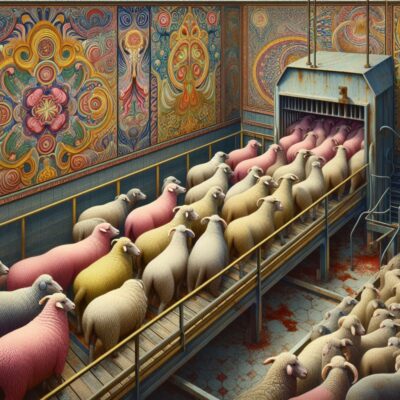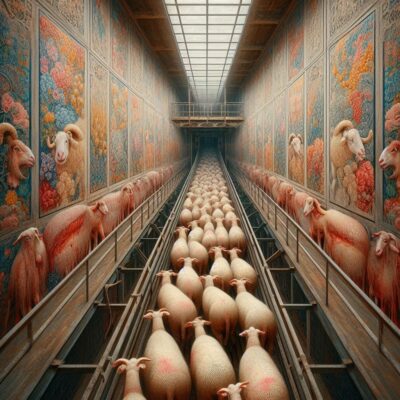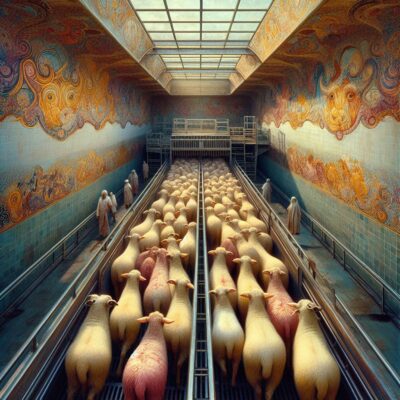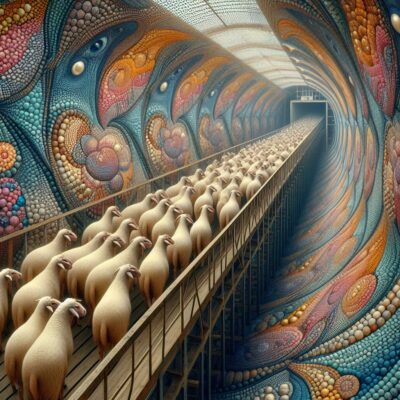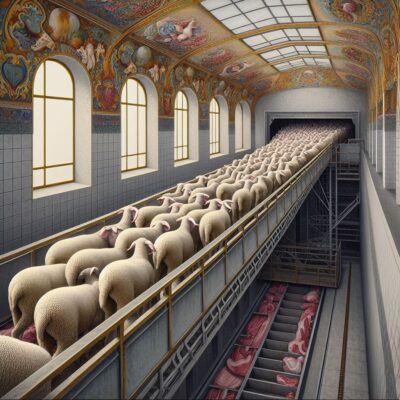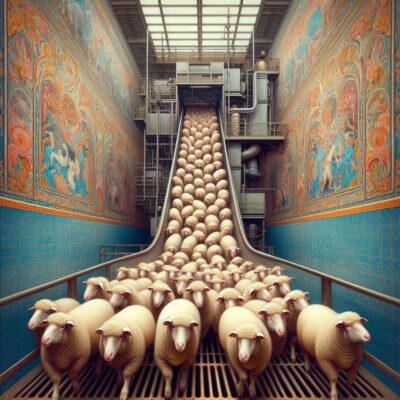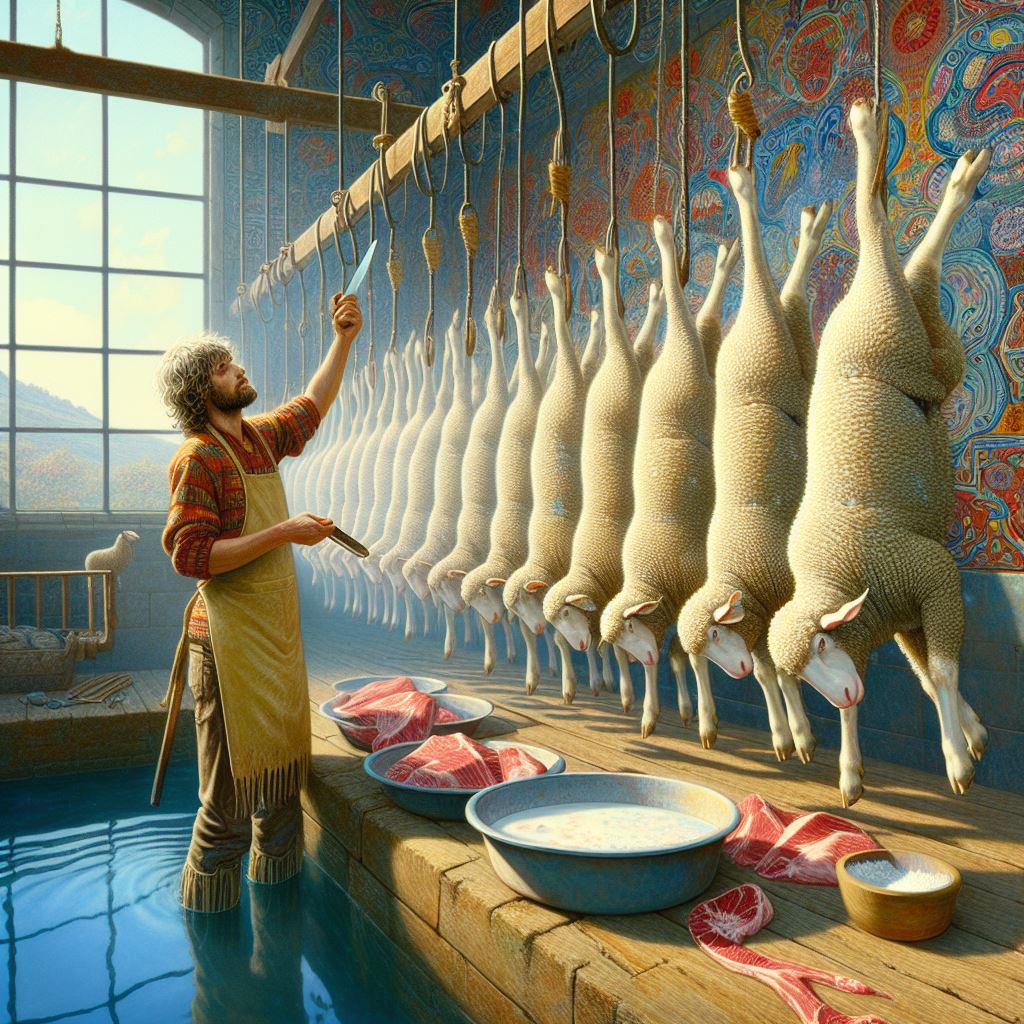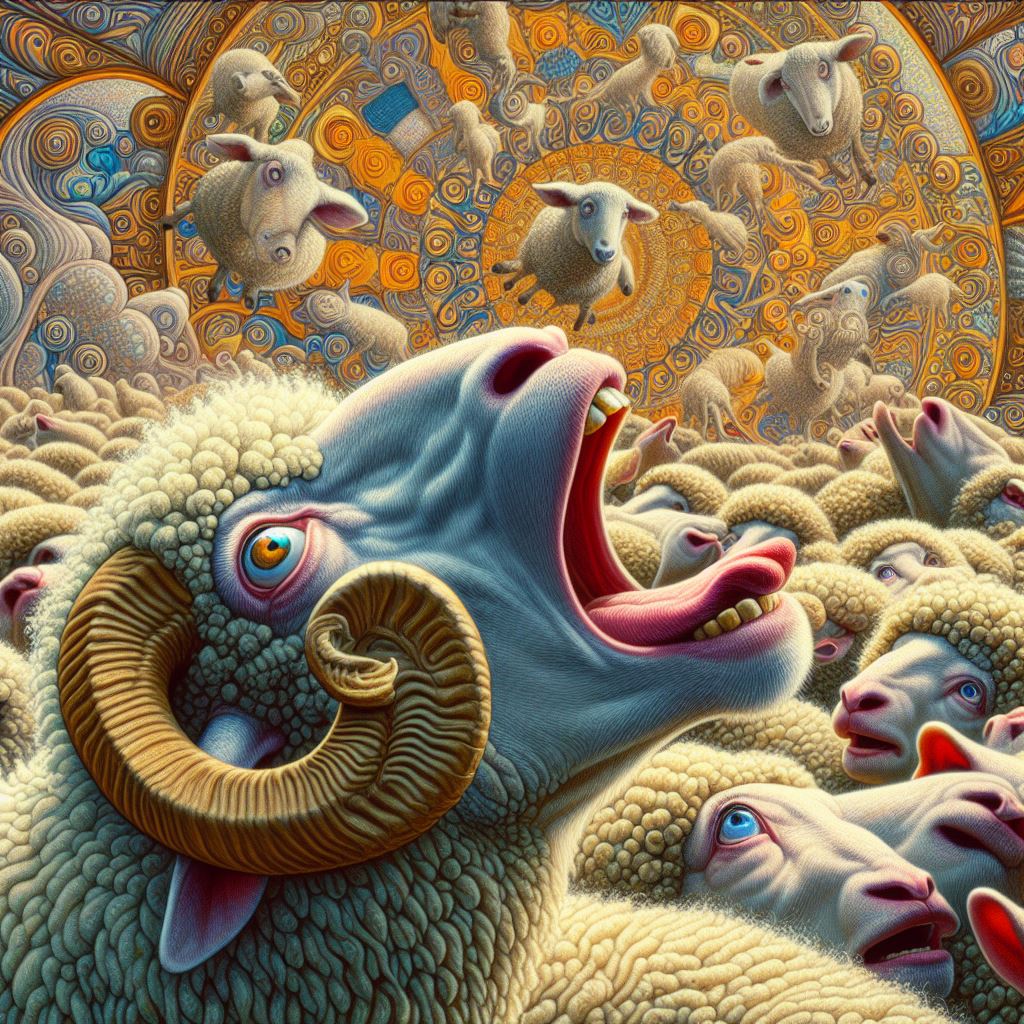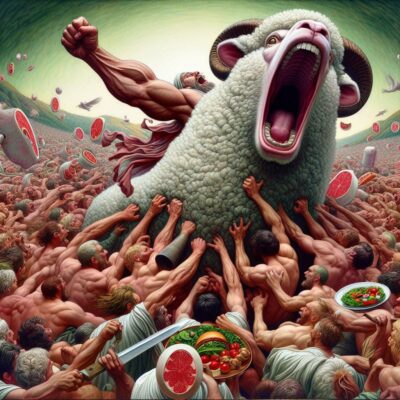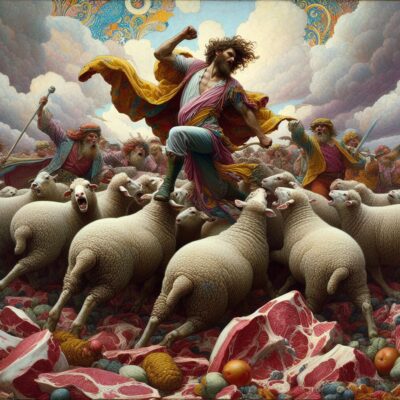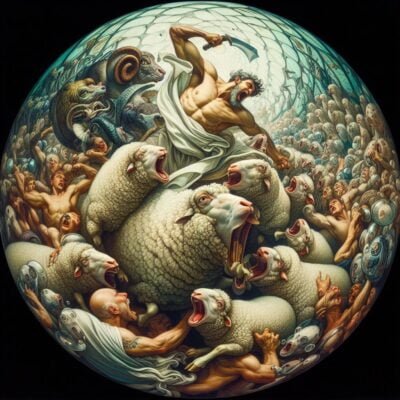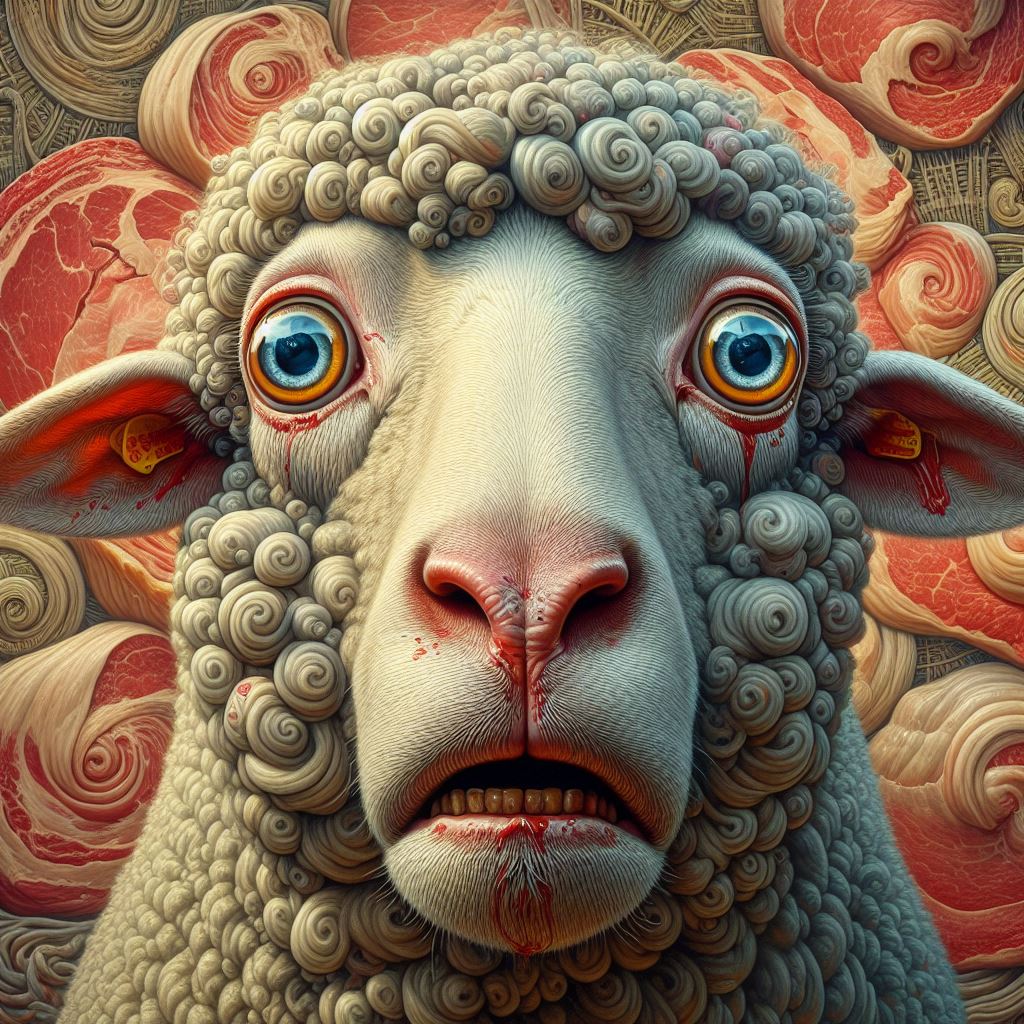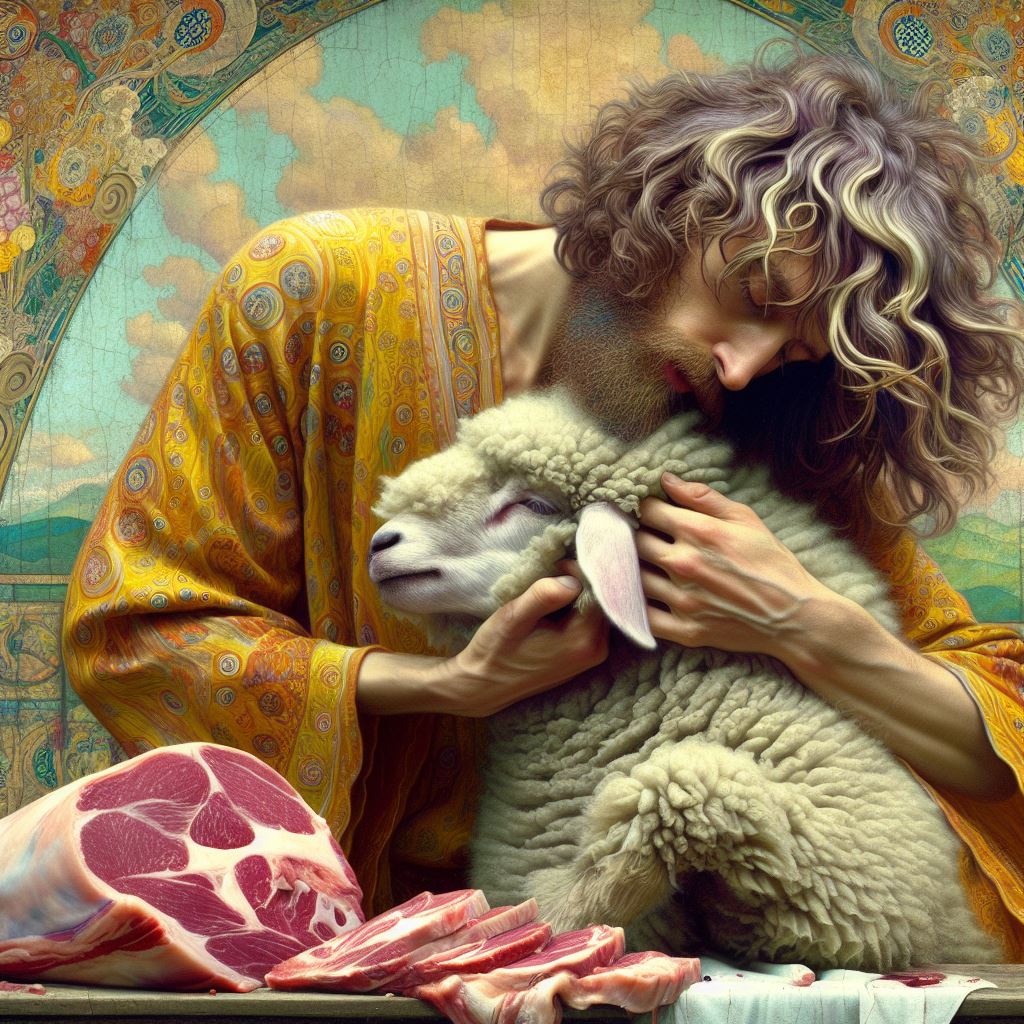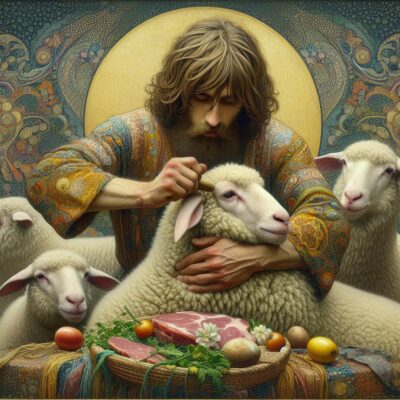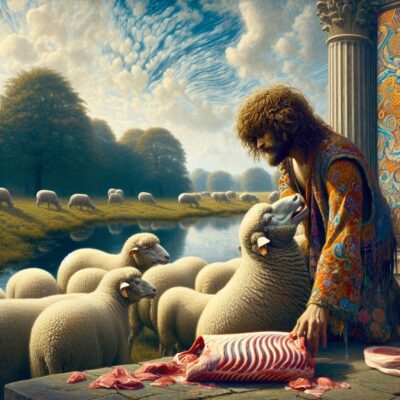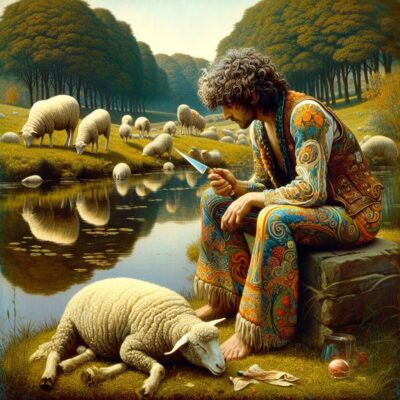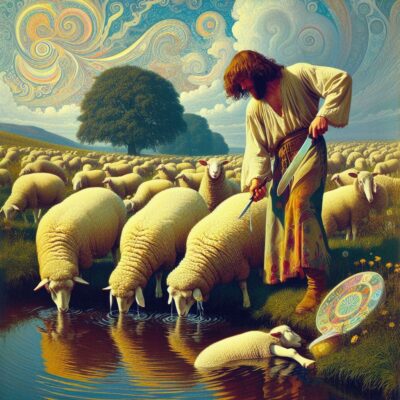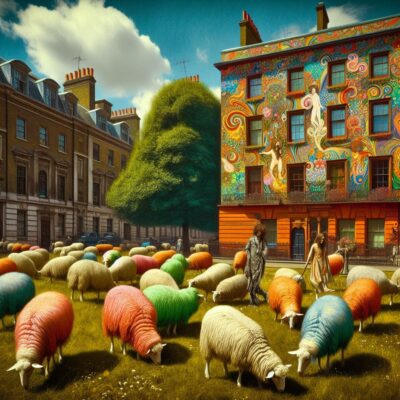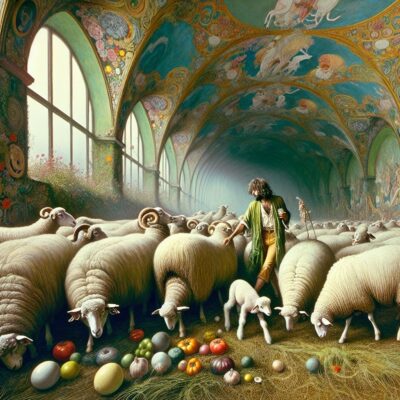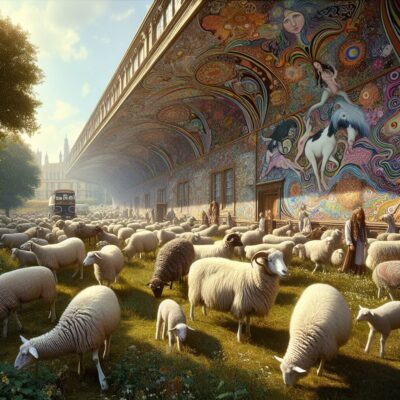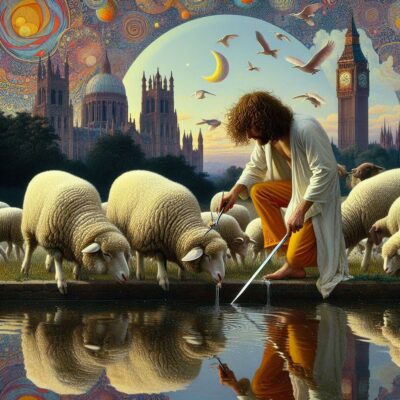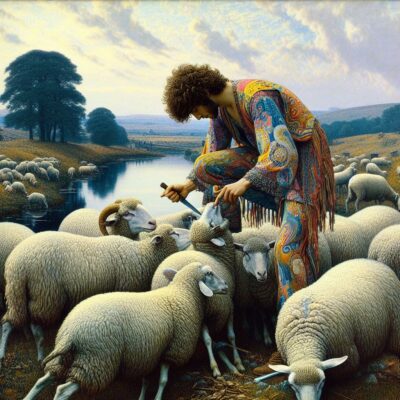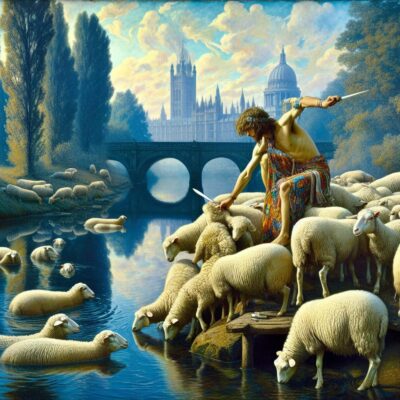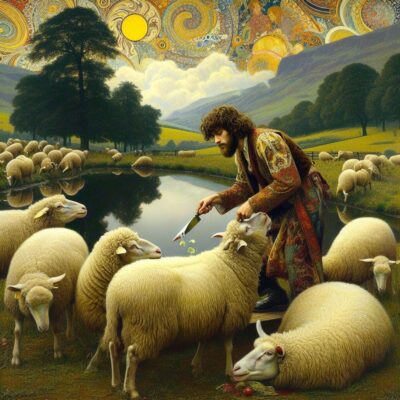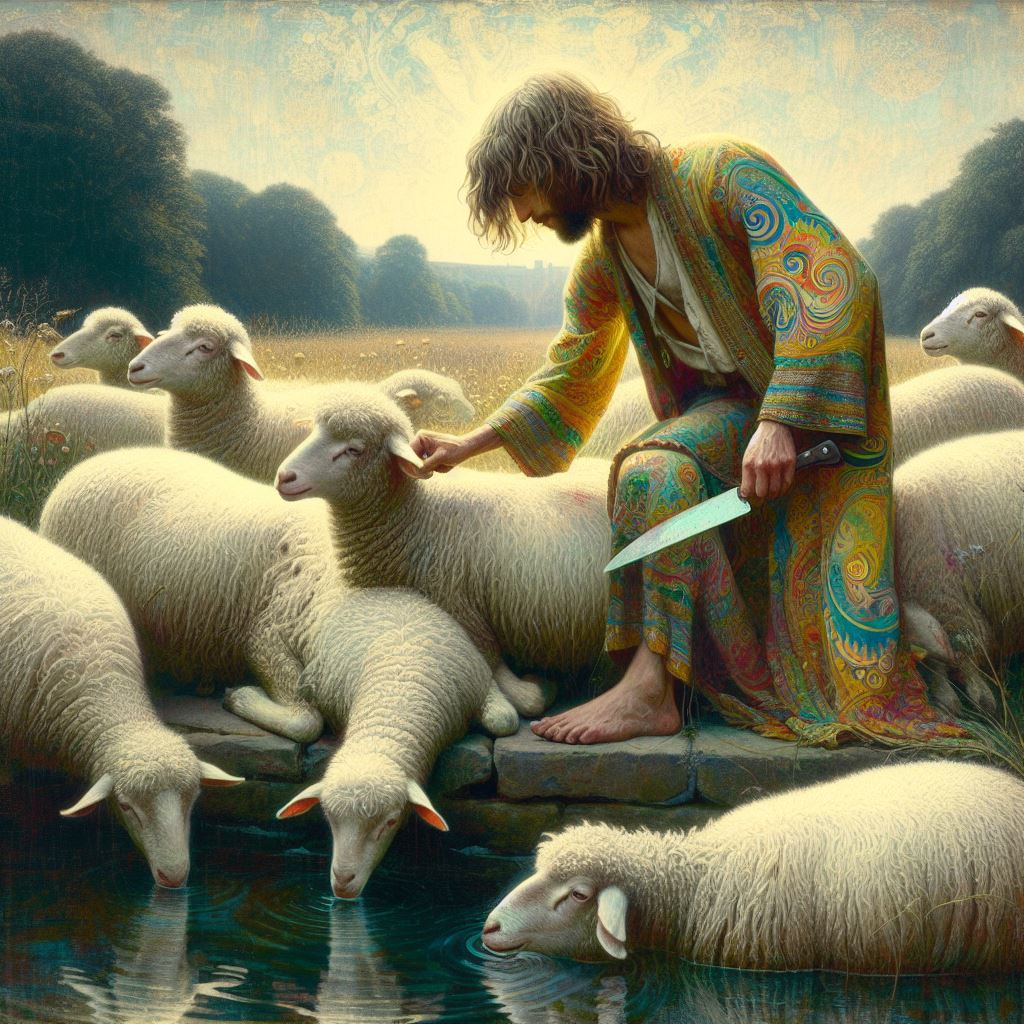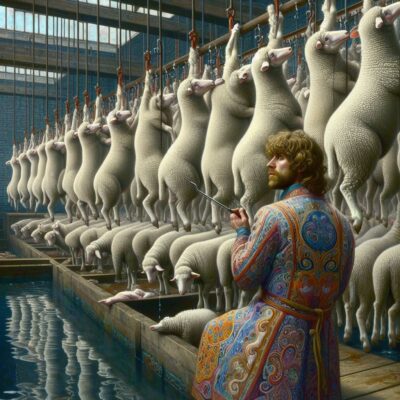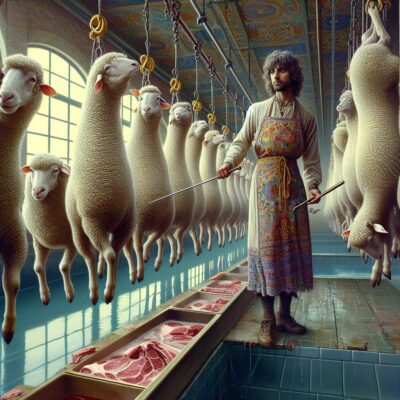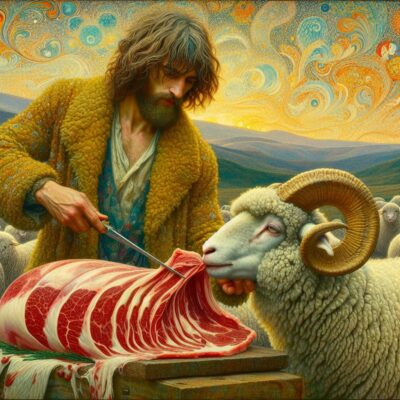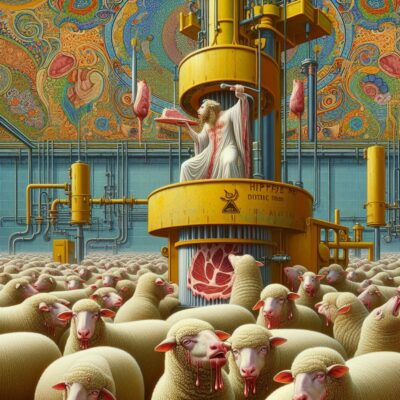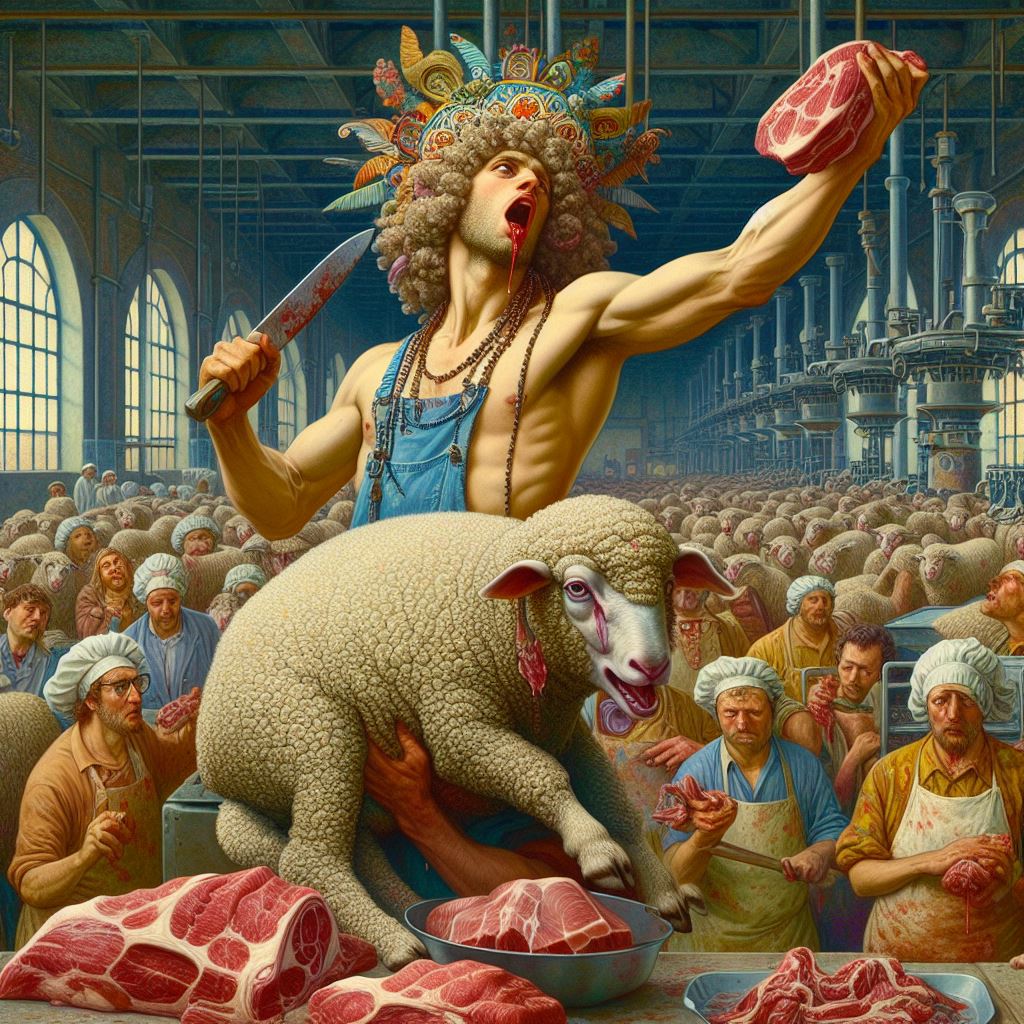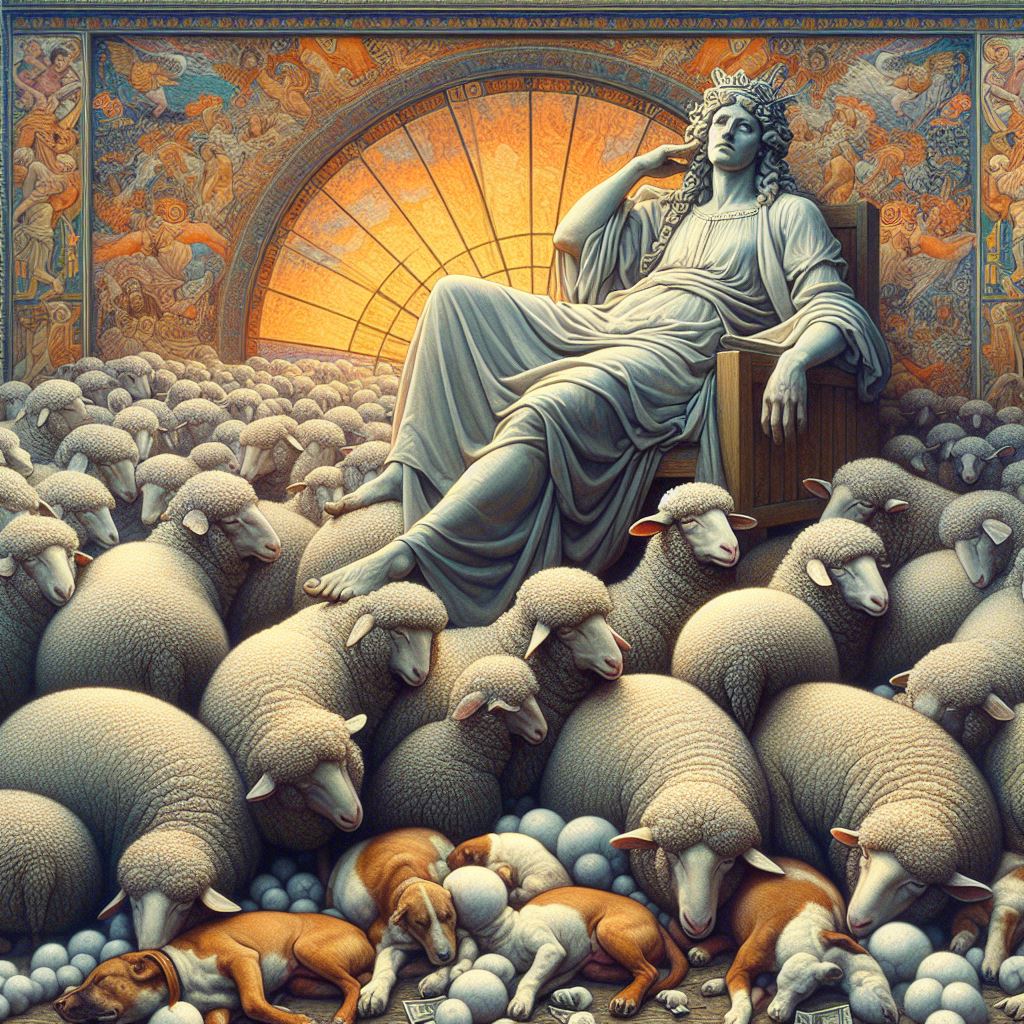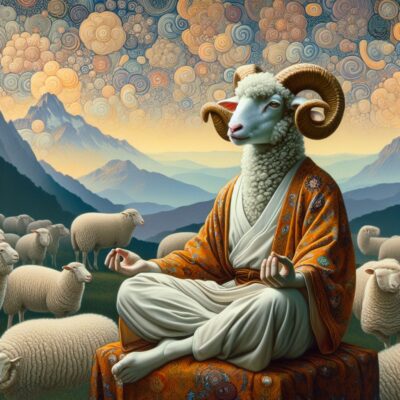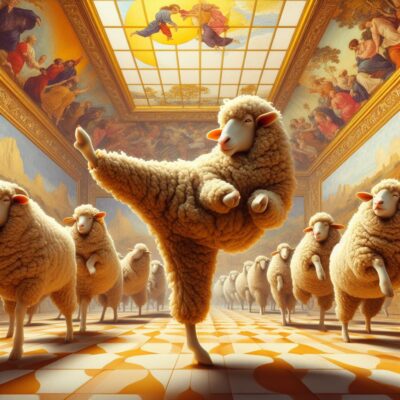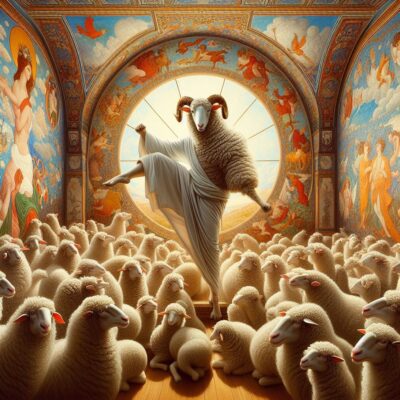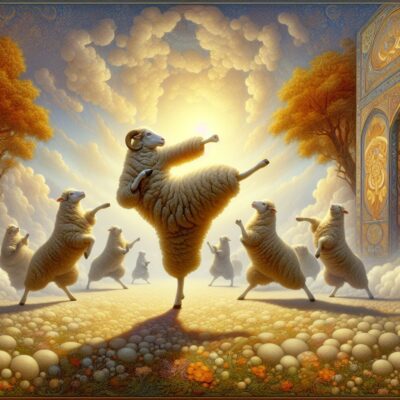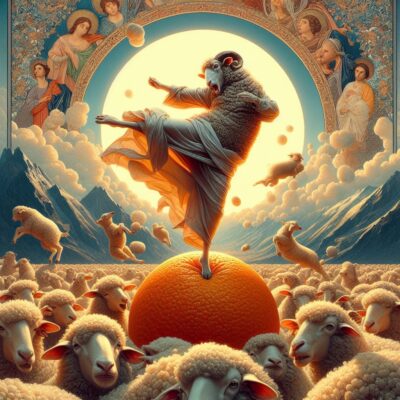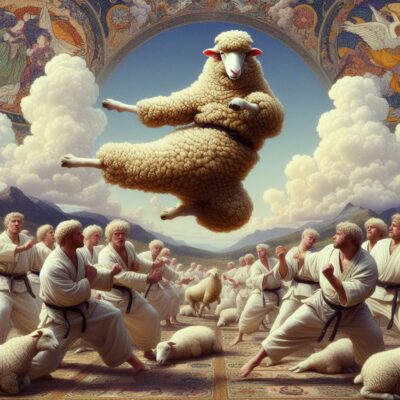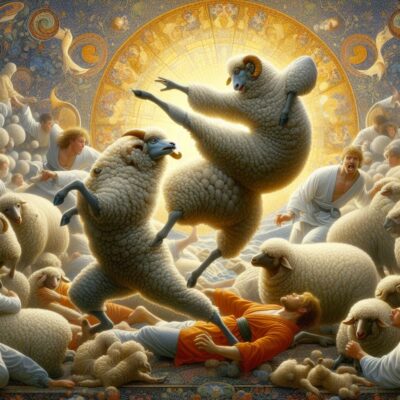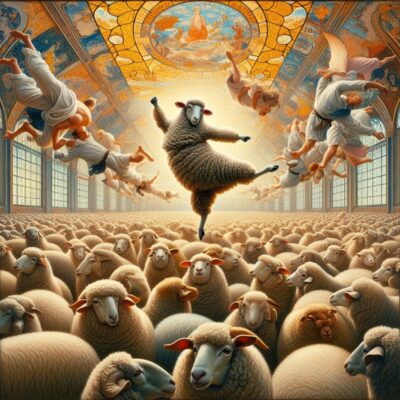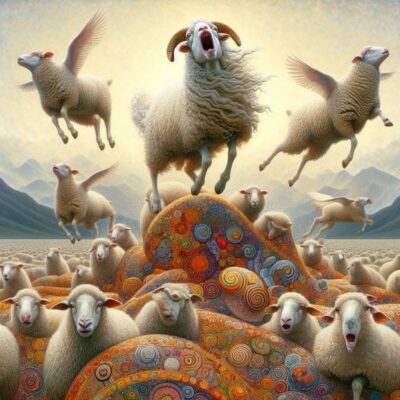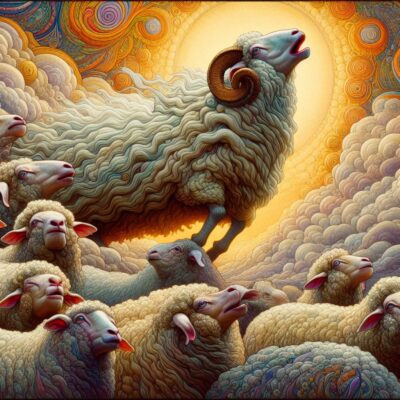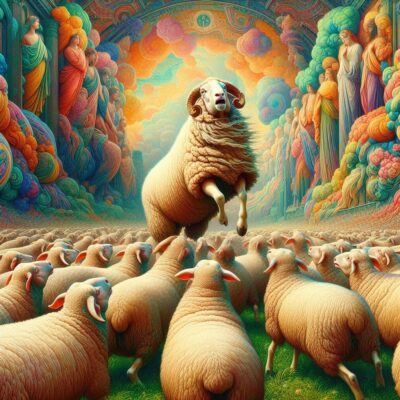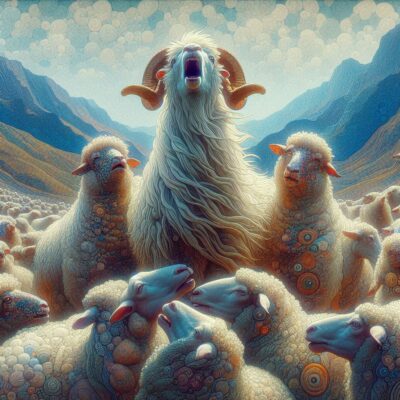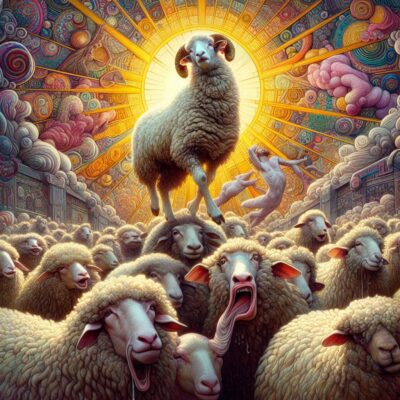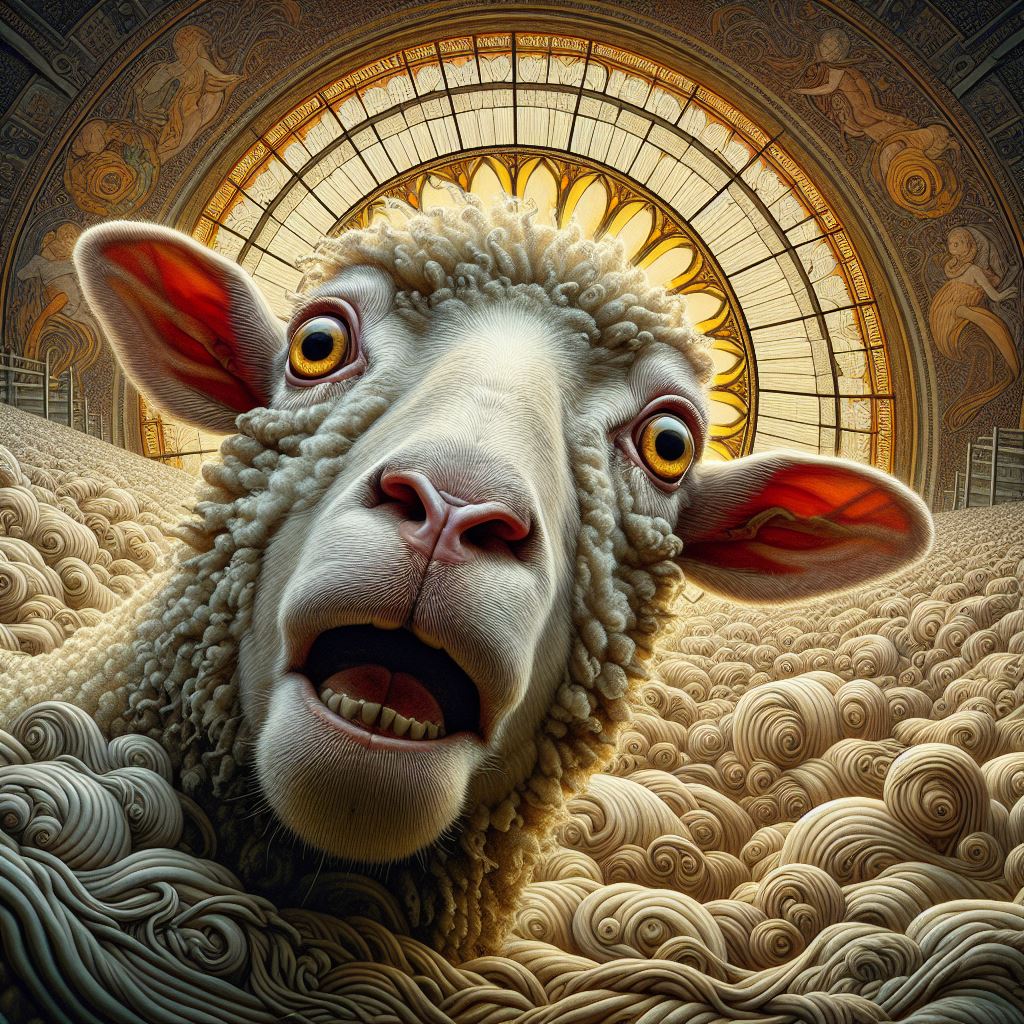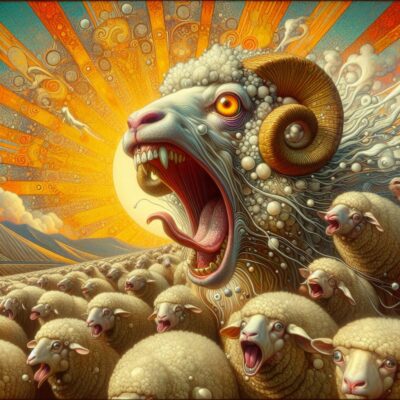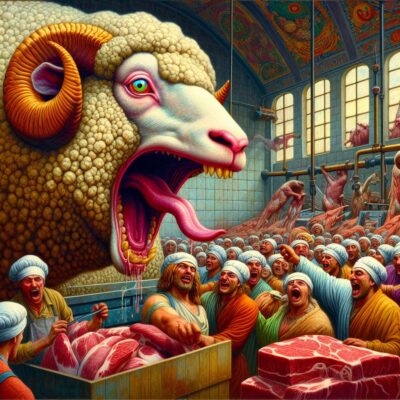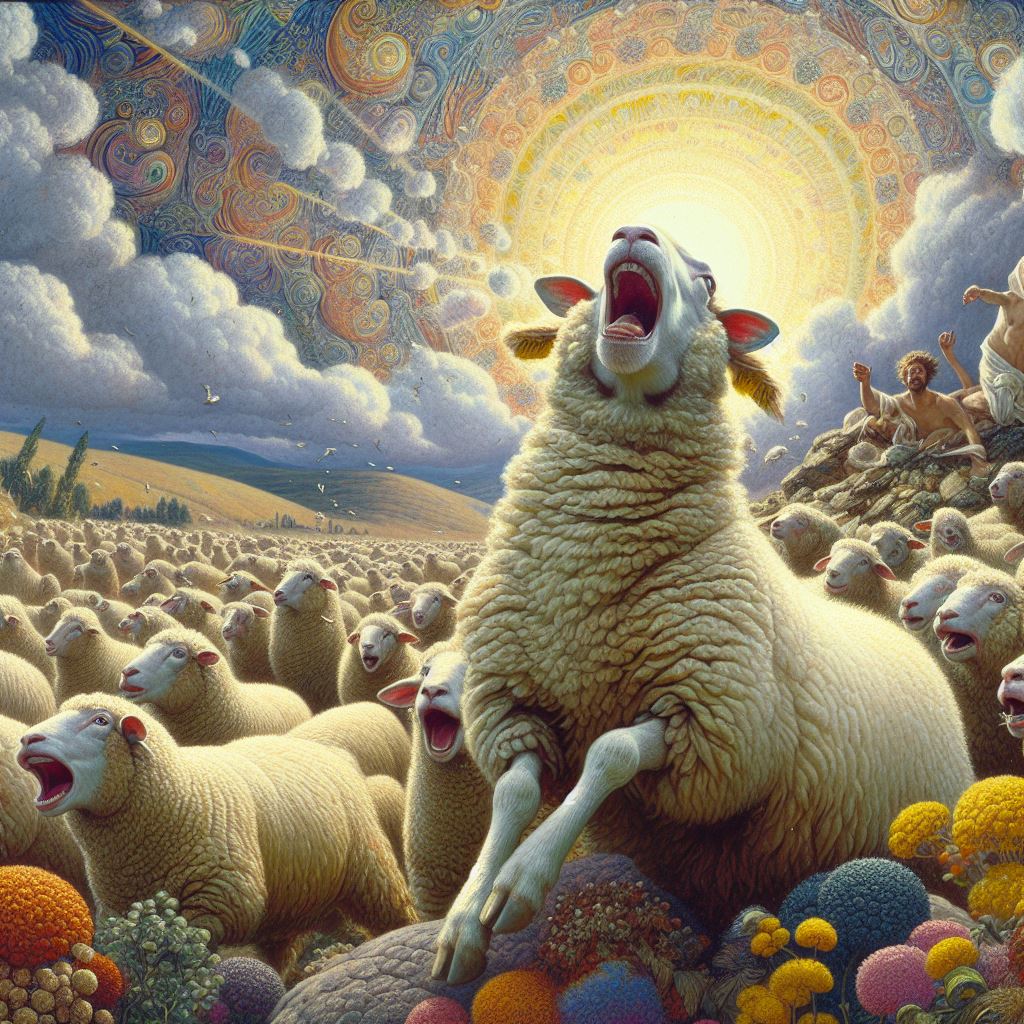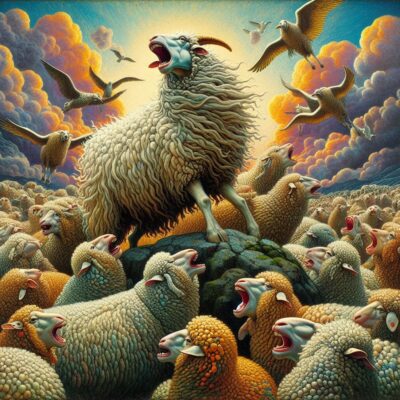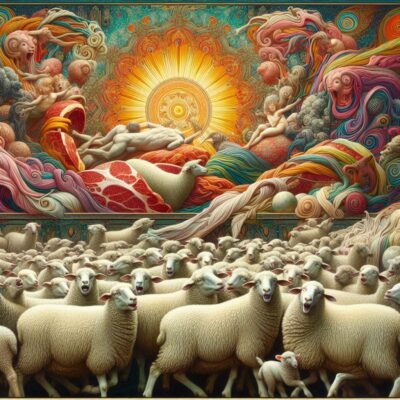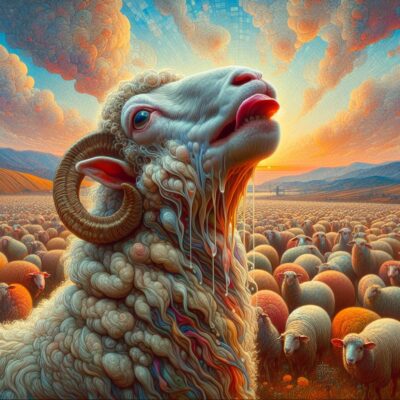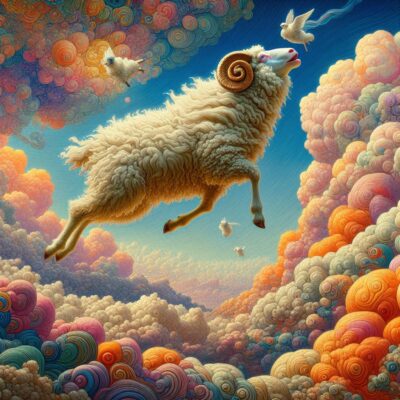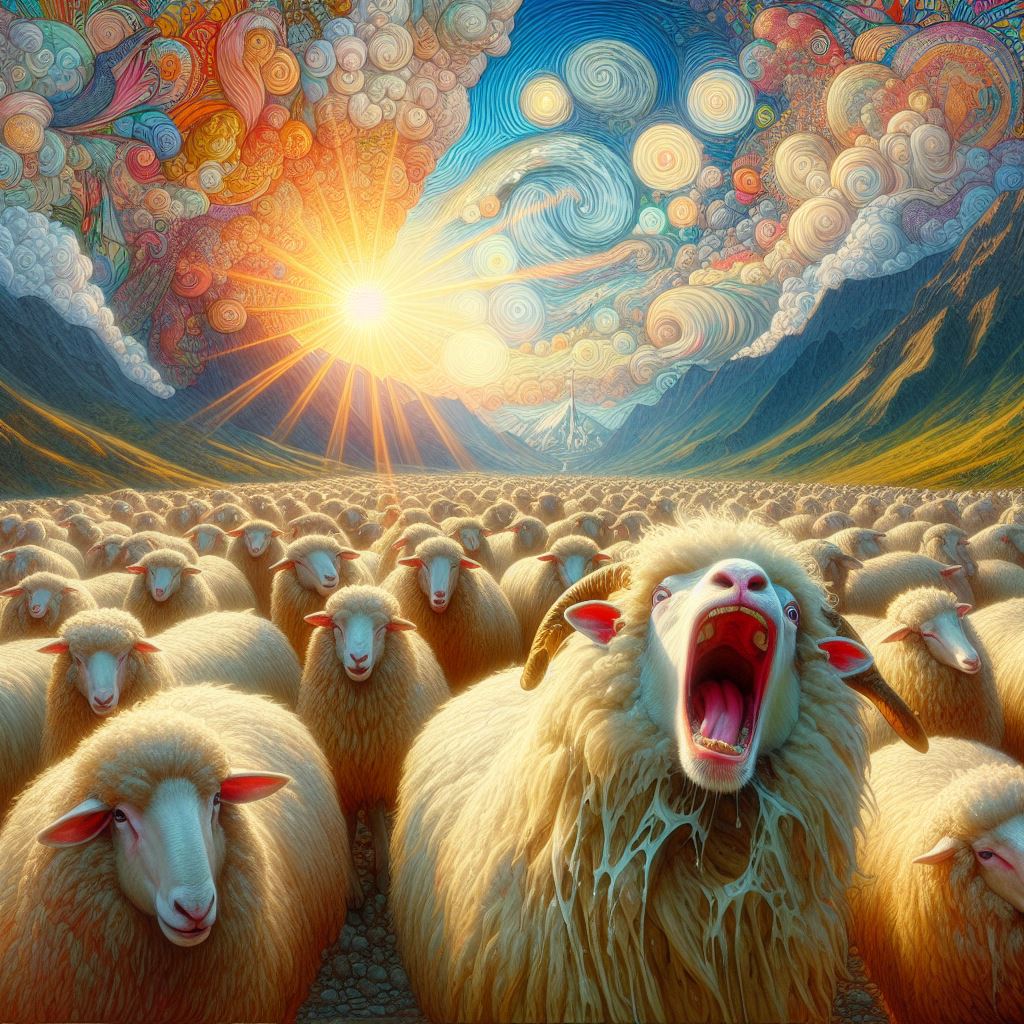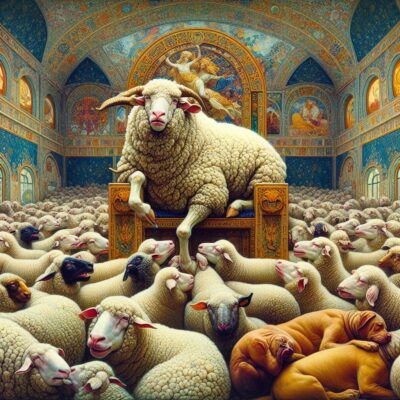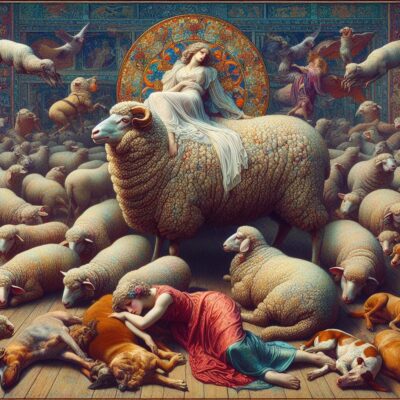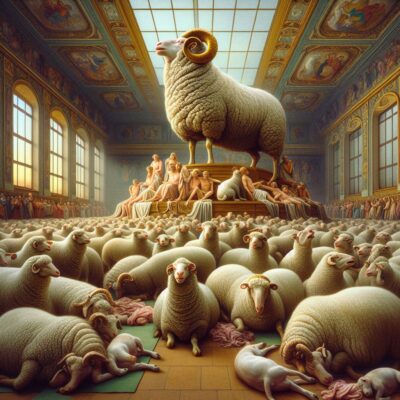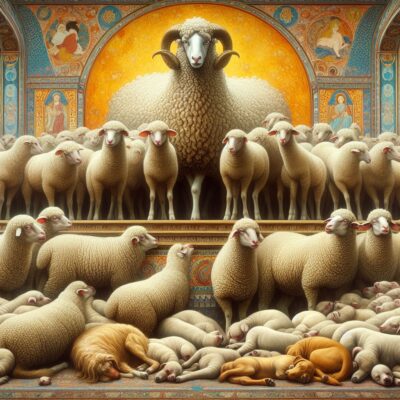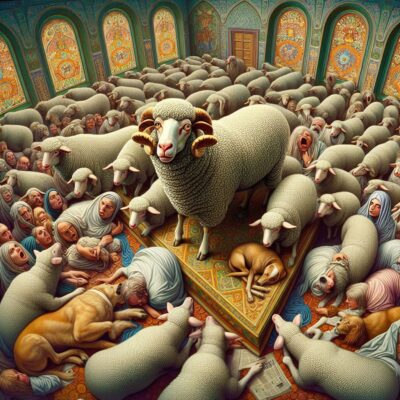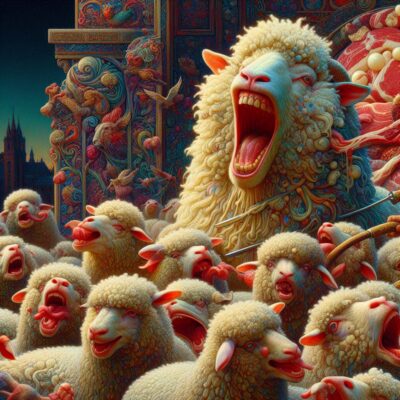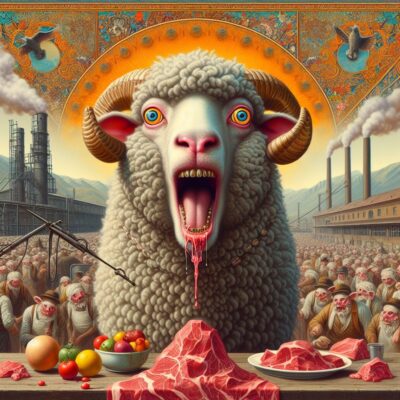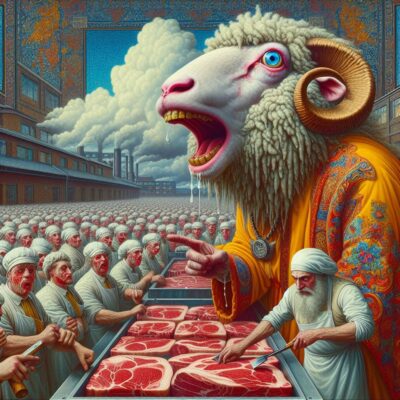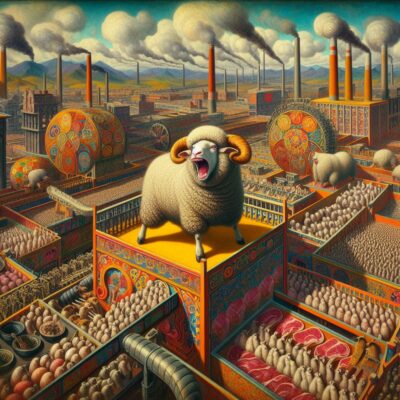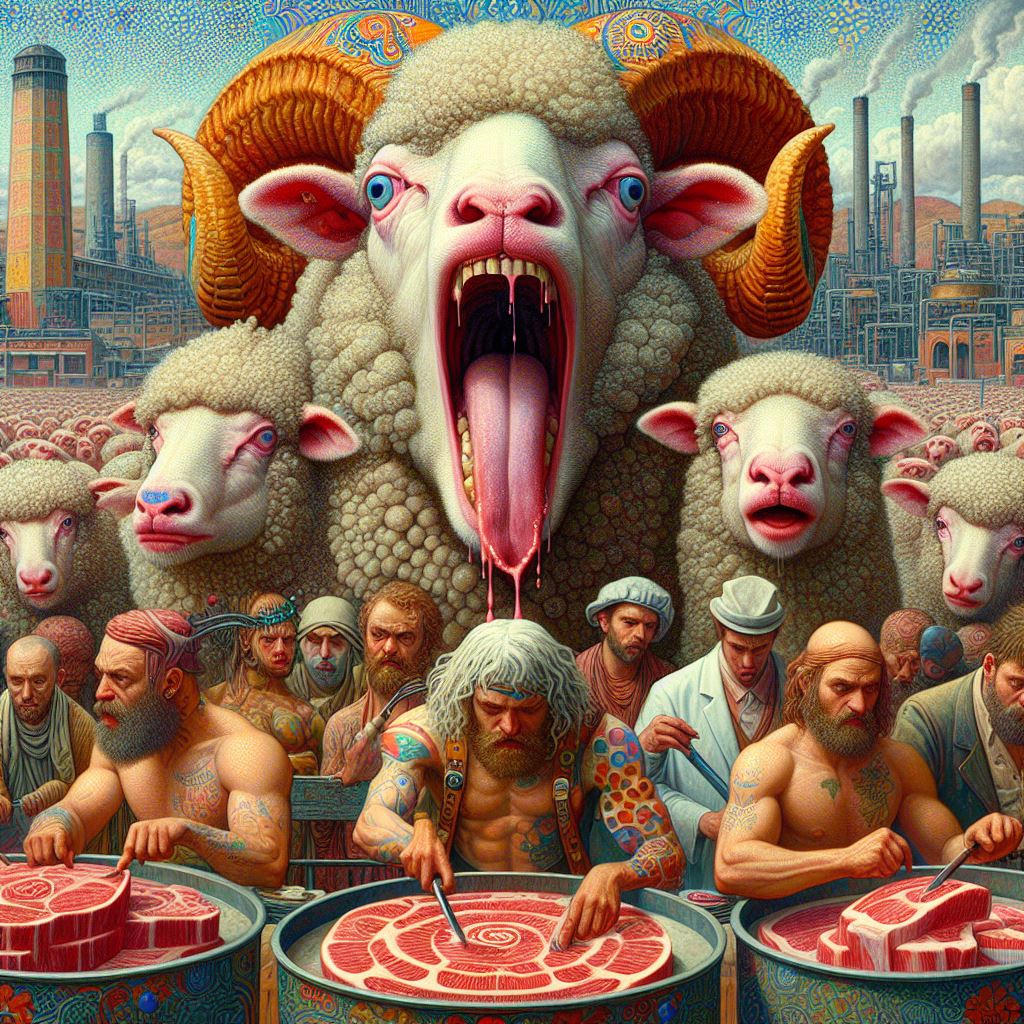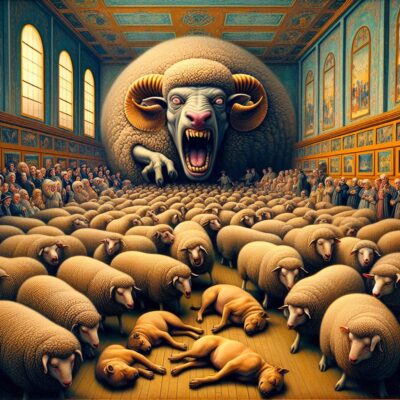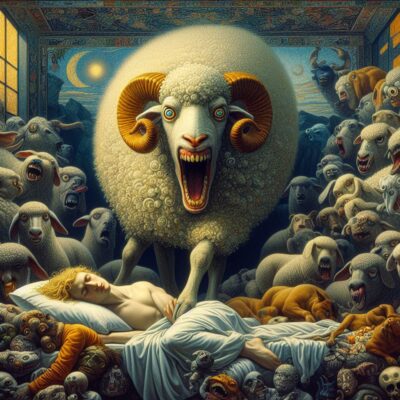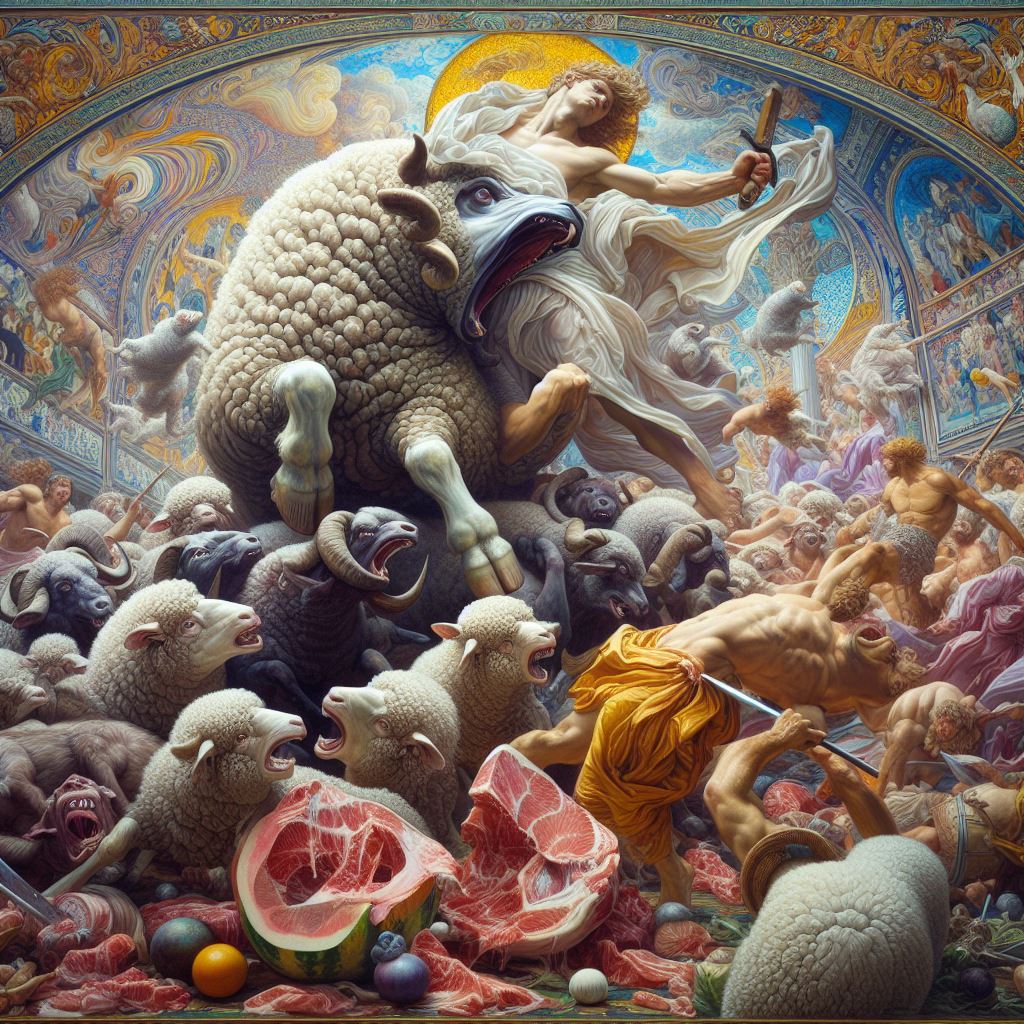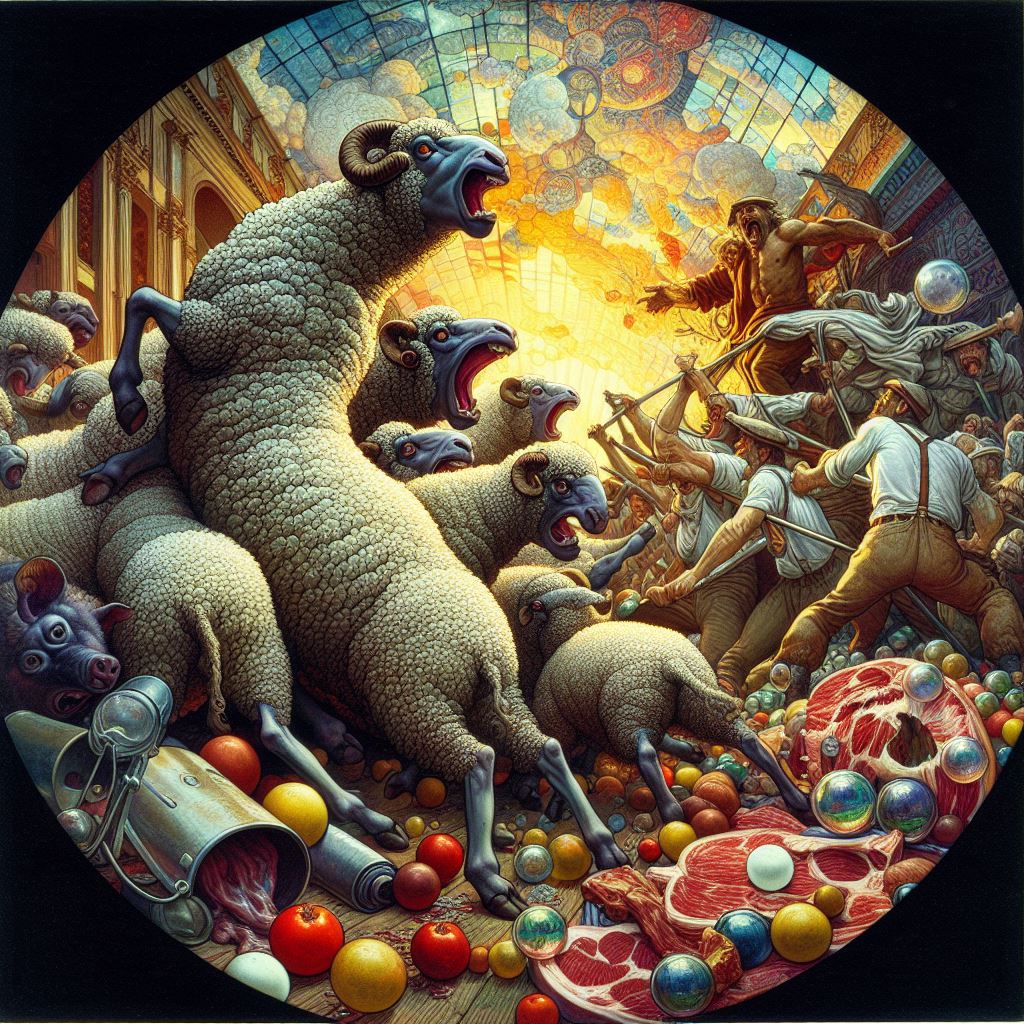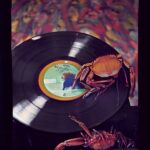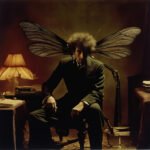Introduction:
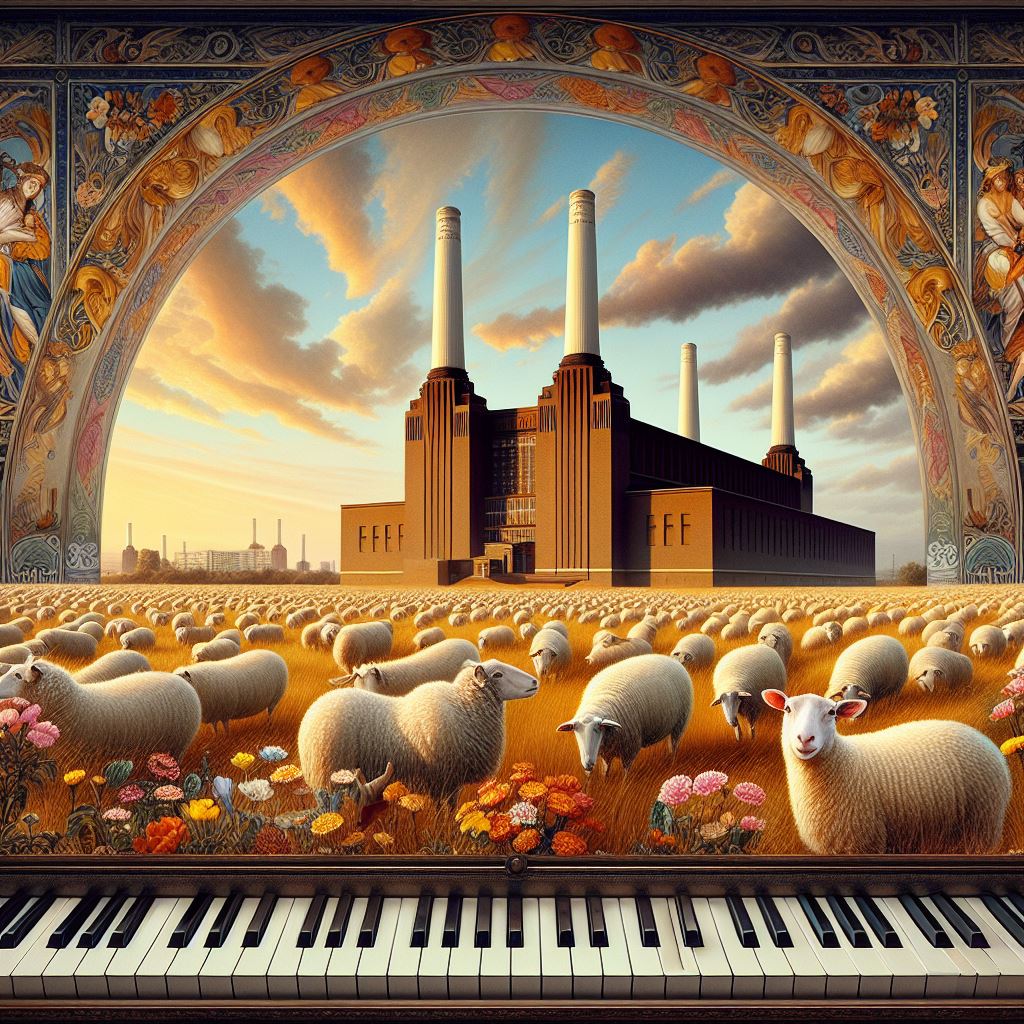 Pink Floyd’s album “Animals”, for me, might stand alone as the most singular achievement of the rock ‘n’ roll era. I’ve always argued that Pink Floyd were not a rock band, but the first act of what several decades later eventually came to be called “post-rock”—artists grounded in the language and conventions of rock but doing their own thing with it—and never did they push the boundaries of rock music further from its beginnings, while still staying true to its basic visceral nature, than on “Animals”.
Pink Floyd’s album “Animals”, for me, might stand alone as the most singular achievement of the rock ‘n’ roll era. I’ve always argued that Pink Floyd were not a rock band, but the first act of what several decades later eventually came to be called “post-rock”—artists grounded in the language and conventions of rock but doing their own thing with it—and never did they push the boundaries of rock music further from its beginnings, while still staying true to its basic visceral nature, than on “Animals”.
Culminating their epic series of classic 1970s albums, each of which further developed the musical experiments of the last, “Animals” was about as far as they, or anyone, would ever take it without completely untethering from the fundamentals that made rock music great, and I don’t think it’s a coincidence that the band famously began to fracture almost immediately afterwards, or that their remaining output during their slow dissolution over the next few years consisted entirely of much more conventional pop-rock such as “The Wall”—certainly still adventurous for pop, but no more than that. I really thought “Animals” was the sound of one of the most talented musical ensembles of a very fertile period for popular music reaching the goals they’d set out towards years earlier. With “Animals”, they were no longer “experimental”—the experiment was over, and it was a success. And the final outcome was absolutely masterful. From the songwriting, to the ensemble musicianship, to the studiocraft, everything together.
I’m pretty sure anyone who’s friends with me doesn’t need that kind of an introduction, or to be told that “Animals” consists primarily of only three long songs, each named after an animal representing a segment of society—”Dogs”, “Pigs (Three Different Ones)”, and “Sheep” (and briefly bookended by two halves of a very short acoustic fourth song, “Pings On The Wing”, serving as the intro and outro of the album). Lyrically, it was the first time songwriter Roger Waters narrowed his personal and humanistic focus from general concerns about modernity (time, money, war, the music business, all previously addressed in broad but detached terms) to more personally call out much more specific currents he saw in society (and even, elliptically, certain individual people, such as reactionary British ideologue Mary Whitehouse, criticized by name in “Pigs”, in Waters’s first-ever lyrical reference to someone outside the band’s direct inner circle), but had not yet begun his later Lennon-esque trajectory of becoming much less poetic and lyrical and more pointed, literal, and emphatically direct about the specifically activist aims of his songwriting.
Well, anyway, I didn’t set out to write a review, and “Animals” in particular is an album that talking about can accomplish only so much, since its success lies in a synthesis of music, lyrics, and ensemble playing that transcends prose and speaks best for itself. But, perhaps visual illustration may still be able to contribute some additional perspective.
 | 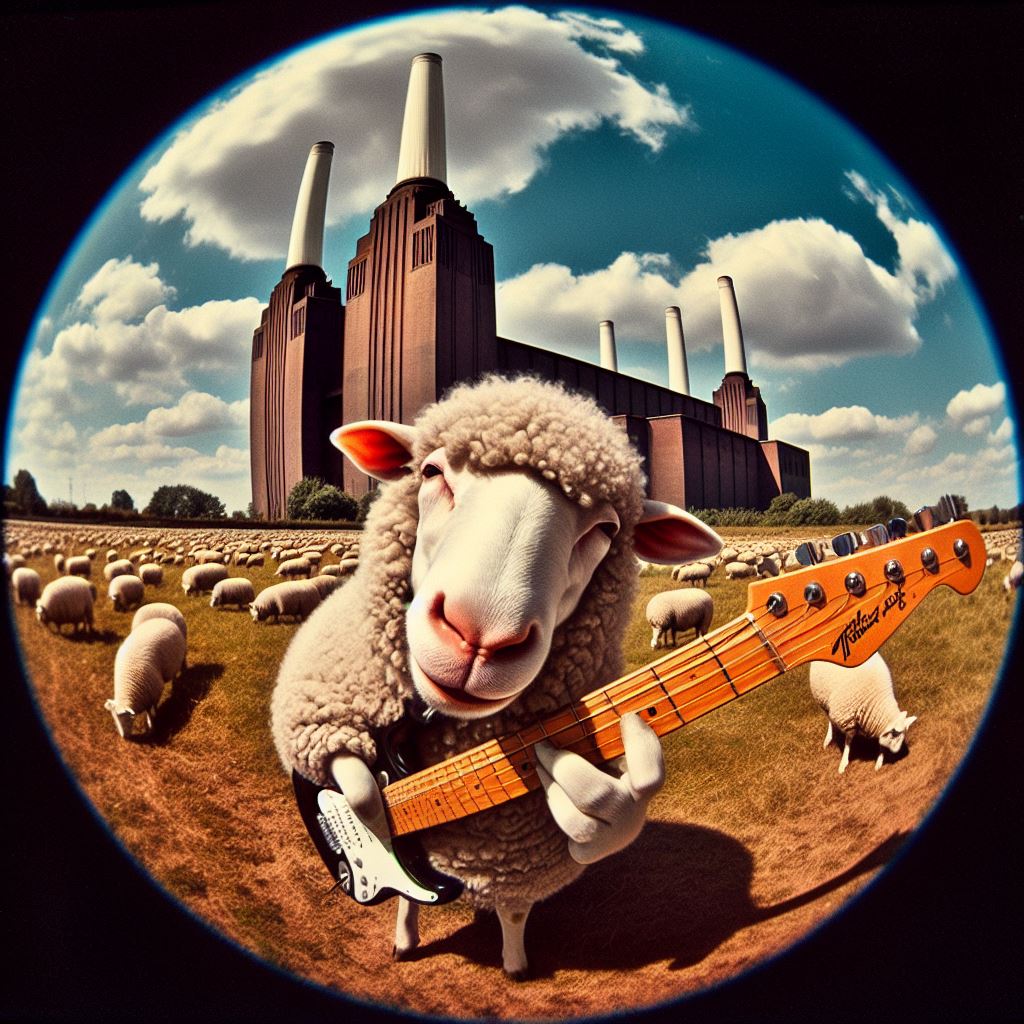 |
—Mike
February 2024

